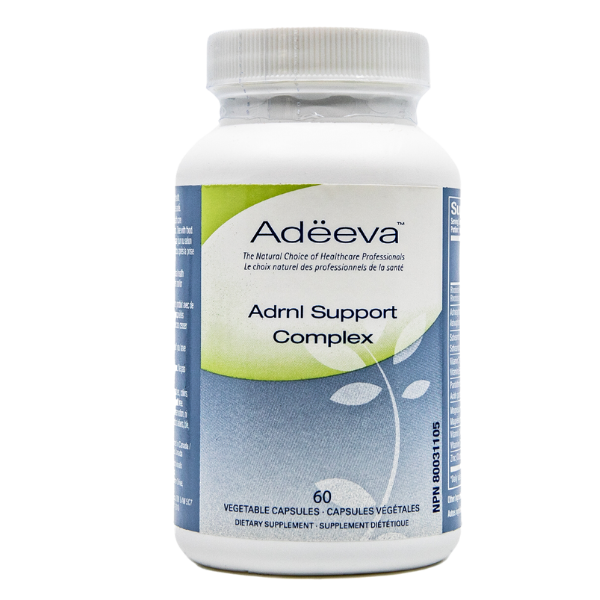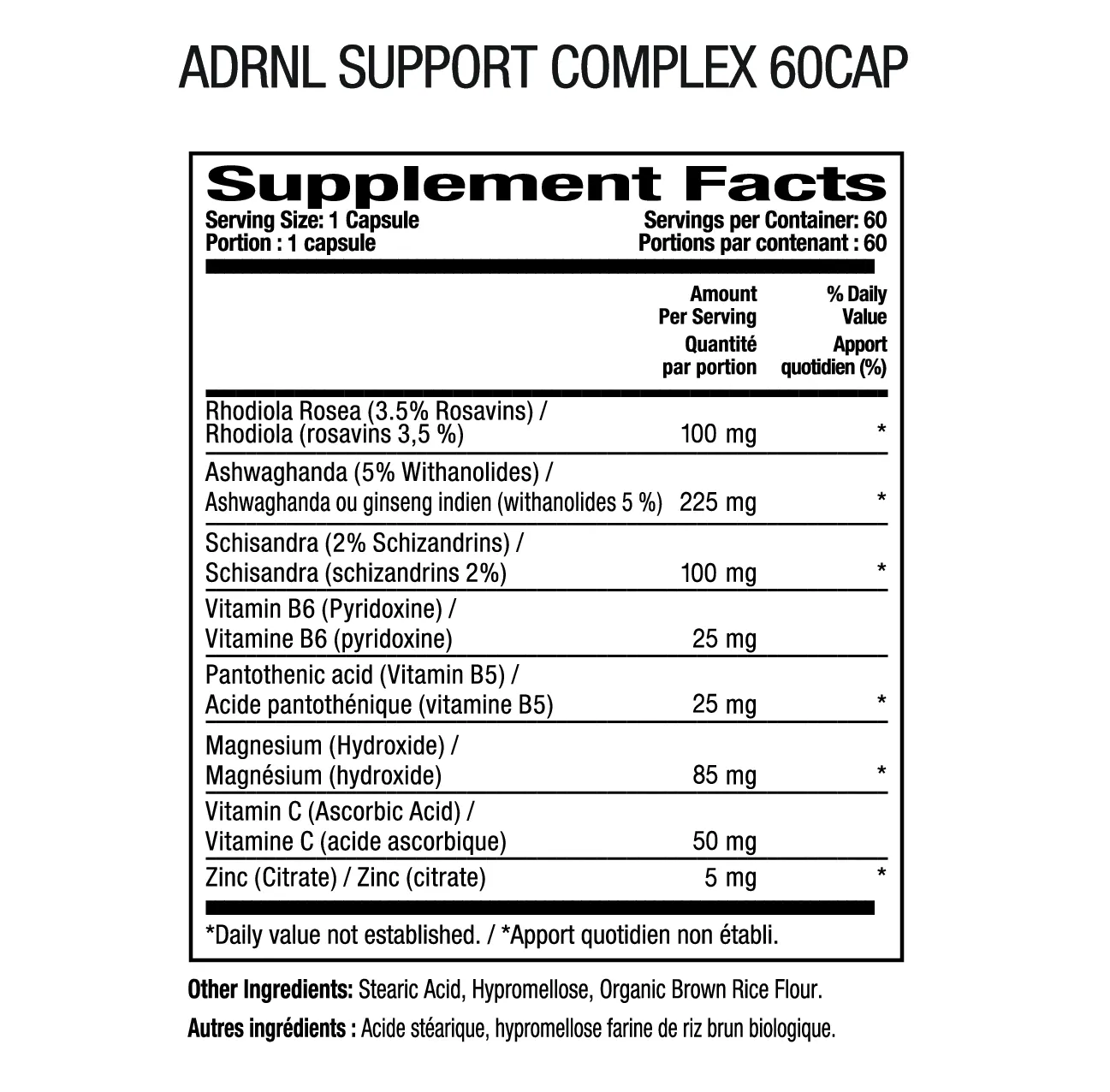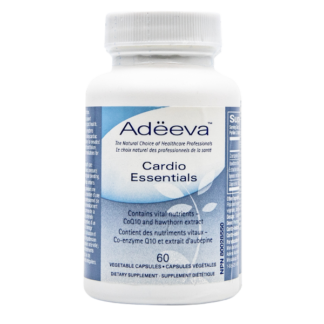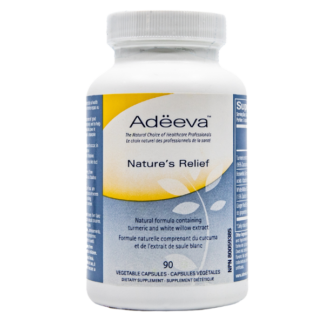Description
The “Stress of Life” by Dr. Hans Selye (a Canadian Endocrinologist) and published in 1956, provided scientists and doctors with ground-breaking findings related to the effects of chronic stress on our health. Since then, many scientists have confirmed that chronic stress disrupts normal hormonal secretion patterns and creates hyperactivity in the nervous system, all of which can culminate in a myriad of common health problems.
Chronic Stress, Cortisol, and Disease
When we are subjected to chronic stress, the pituitary gland prompts the adrenals to pump out excess amounts of cortisol. High levels of cortisol produce a myriad of negative health effects, which can include:
- Immune Suppression – with increased susceptibility to infections and other serious diseases, including cancer
- Weight Gain – cortisol hastens the conversion of carbohydrates into fat
- Blood Sugar Elevation and Insulin Resistance – cortisol impairs the uptake of glucose producing a rise in blood sugar, which can trigger or worsen diabetes, It also increases the breakdown of liver glycogen, releasing large amounts of glucose to the bloodstream – further raising blood sugar
- Fluid Retention – cortisol increases sodium and water retention from the kidneys
- Wrinkles and Aging – cortisol breaks down collagen, promoting the formation of wrinkles, fine lines, and crow’s feet
- Memory Impairment – cortisol damages the hippocampus of the brain, which impairs learning. Shrinking of the hippocampus is a hallmark feature of Alzheimer’s disease
- Chronic Inflammation – cortisol produces chronic inflammation, exacerbating arthritis, tendonitis, bursitis and other inflammatory conditions
- High Blood Pressure – sodium retention from the kidney can increase blood pressure in sensitive individuals
- Breaks Down Muscle – cortisol causes muscle breakdown, which slows metabolism, and produces weakness
- Osteoporosis – cortisol impairs calcium absorption and promotes loss of calcium from bone, which contributes to osteoporosis development
Nutritional Adaptogens to the Rescue
Adaptogens, discovered in certain herbs, prevent the over-secretion of cortisol and help reduce the impact of stress on the body in numerous ways. Adaptogens were discovered in 1947 by the Russian scientist Dr. Nicolai Lazarev, who coined the name “adaptogen.” Unfortunately, some adaptogen-containing herbs contain other undesirable constituents that interfere with many drugs or may produce adverse side effects. As such, many experts caution against the use of ginseng (Siberian, Korean, Panax, etc.) and licorice as stress-fighting supplements.
The adaptogen-containing herbs that provide the best anti-stress benefits and have the best safety record include:
- Rhodiola
- Schisandra
- Ashwagandha
Working synergistically, these herbs have been shown to tone down the over-secretion of cortisol, maintain more optimal immune function and support the brain’s ability to make optimal amounts of memory and feel-good chemicals (serotonin, dopamine, and norepinephrine, etc) under periods of chronic stress.
As well, to prevent adrenal fatigue it is important to take a high potency multiple vitamins (e.g., Adëeva Multiple Vitamin and Mineral) and to acquire additional vitamin B6, pantothenic acid, magnesium, vitamin C and zinc from an adrenal support supplement.
If you have been dealing with any of the health problems described above, and you feel that chronic stress has been a contributing factor, you should consider taking 2 capsules per day of Adëeva Adrenal Support Formula as part of your supplementation regimen.
We can’t always make our lives less stressful, but we can counter the effects of stress on our bodies by supplementing with safe, proven adaptogens, along with vitamins and minerals that support adrenal function.







Liam MacDonald –
Life-Changer!
Adeeva Adrenal Support Complex transformed my energy levels and stress management. Highly recommended!
Olivia Tremblay –
Effective Pick-Me-Up
I’ve noticed increased vitality and mood improvement since starting Adeeva Adrenal Support Complex.
Mia Beaulieu –
Energy Booster
Adeeva Adrenal Support Complex provides a noticeable energy boost throughout the day.
Noah Dubois –
Improved Well-Being
I’ve experienced enhanced well-being and better focus since adding this to my routine.
Ethan Singh –
Stress Buster!
This product really helps me handle stress better. Feeling more balanced and resilient.
Emily Thompson –
Effective Stress Buster!
I have been dealing with stress and fatigue for quite some time, and it started taking a toll on my overall well-being. That’s when I discovered the Adrenal Support Formula, and it’s been a lifesaver!
Sophia Lavoie –
Quality Product
Adeeva Adrenal Support Complex is a top-quality supplement for adrenal health.
Benjamin Gagnon –
Great for Energy
Helps me stay energized and alert, especially during hectic days.
William Pelletier –
Adrenal Savior
This supplement has been a lifesaver for my adrenal health. I feel more resilient.
Charlotte Leblanc –
Positive Effects
I’ve noticed positive changes in my mood and energy levels with this product.
Lucas Boucher –
Energy Renewal
Adeeva Adrenal Support Complex revived my energy and vitality. Highly recommended!
Ava Desjardins –
Worth Trying
A good addition to my wellness routine, helping me stay balanced in a busy life.